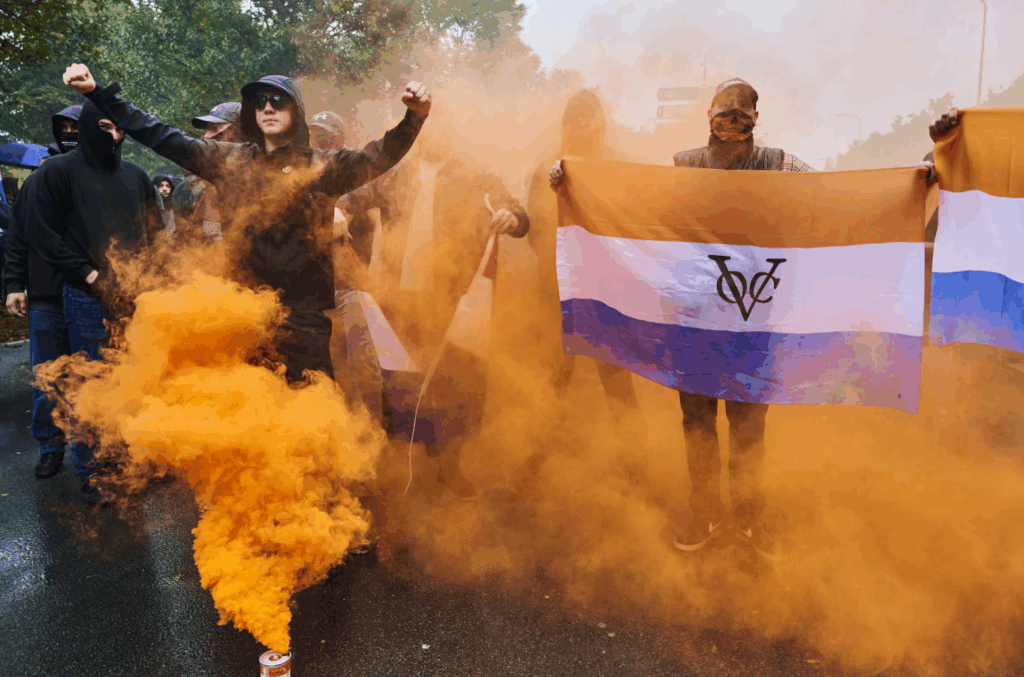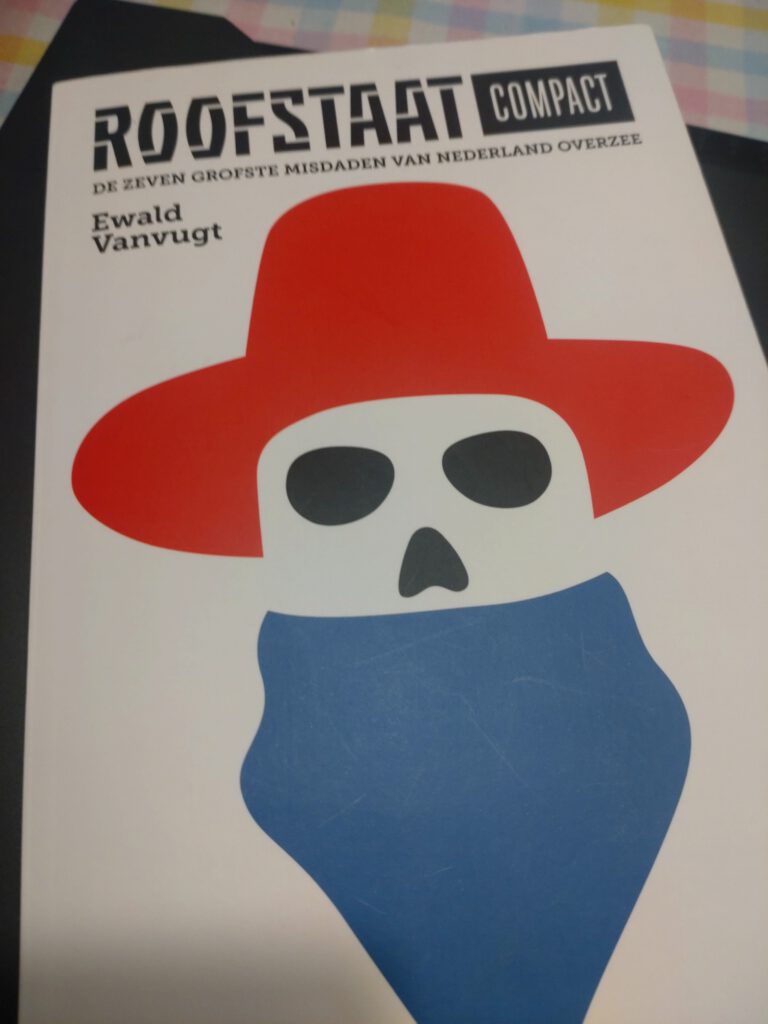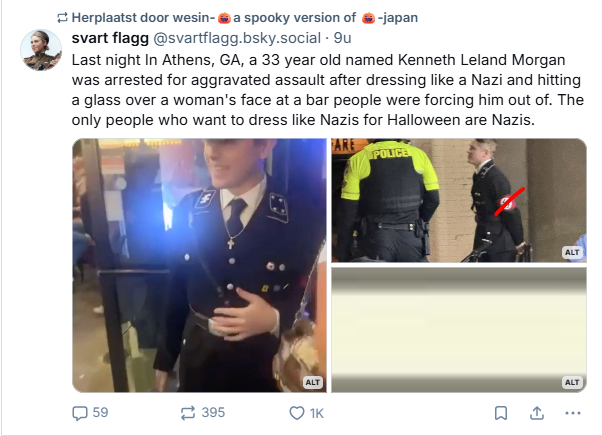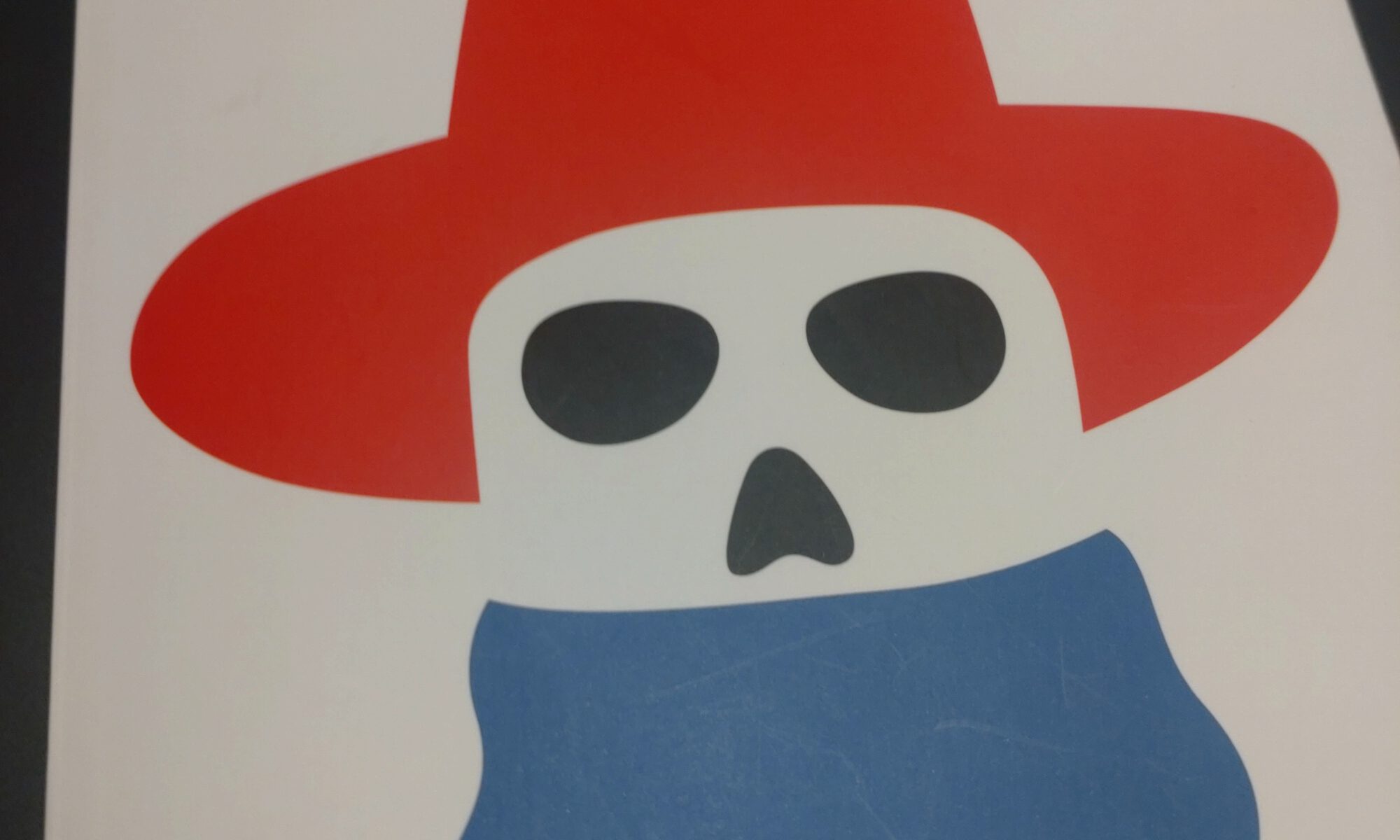Not a lot of things make me fearful until a demonstration against migration happened in September. It’s been a month now and I still feel uncomfortable around certain opinions.
During that demonstration some guys thought it was fitting to fly the Dutch East India Company (VOC) flag. For me that flag is synonymous with genoicide commited to the people of my motherland, which is Indonesia.
This flag is paraded around by white nationalists who are openly idolizing the Great Replacement Theory, various anti-Semitic conspiracy theories, and generic hatred towards people of color. They romanticize a time when the Netherlands was an all-powerful colonizer, with many victims. The road to wealth was paved with blood.
And this open expression of hatred, which certain political parties fail to see as a problem, makes me fear for my own safety.

It comes at a time when the Dutch side of my family feels comfortable to say that they don’t want their children to play or even mix with brown children. To which my mother (born in Indonesia) remarked that she is also a brown person and as a result we as a family are banned from future birthday parties. I’ve never imagined that our skin colour would be a problem for people I have bloodties with through my dad. And I am so fucking relieved he is dead, and did not have to hear this bullshit.
When hearing people talk about how bad it is to racially mix and the call for pure blood, I think about nazi Germany and the book of Trevor Noah – Born a Crime. I am mixed blood, what is the danger of a person like me existing? People forget that migration has been around for millennia. People from the Caucasus settled in the Netherlands, and we also experienced several Viking and Roman invasions. There are descendants of those. But I guess the big sin is coloured blood intermixing, no issues when it’s white.
With the rise of far-right politicians I feel less comfortable with the dominant populace. Brabant is largely homogeneous, and as a small child you get used to people always making comments about your skin color or customs that are not Dutch. They have no problem with our nasi goreng, but if you even mention anything about Indonesian customs, you have to get lost. Gamelan and a centuries-old traditional dance are reduced to a Mora chicken satay commercial. But that does not make it okay to do this to a part of my culture.
In the 1980s and 1990s, the consequences of colonization were never discussed in schools. Only that the VOC generated great wealth and made the Netherlands a world power was taught. But not who suffered for it.
Those waving the VOC flag won’t be interested in what I’m about to tell you. But it’s my duty as an Indo-European to reflect on some of the crimes committed by the Netherlands overseas.

The conquest of the Banda Islands by the Dutch East India Company (VOC), culminating in the Banda Massacre of 1621, was the gradual military conquest of the Banda Islands by the Dutch East India Company (VOC) from 1609 to 1621. The islands were largely depopulated by fighting, famine, massacres, and deportation. This was done to secure the VOC’s desired monopoly on the spice trade, particularly in nutmeg, mace, and cloves.
Governor-General Jan Pieterszoon Coen decided that English interference and native resistance to Dutch commercial supremacy in the Bandanese archipelago had to be crushed once and for all by depopulating the largest island, Banda Besar (Lontor). The Heeren XVII gave Coen their permission and support for this. This led to the Banda Massacre, in which most of the original population was either killed or enslaved and replaced by African slaves from Madagascar.
Attack on Chinese workers. In addition to the local inhabitants, many foreigners lived on the Indonesian islands: Dutch, Portuguese, English, and Chinese. They were traders and lived in the city or worked as laborers for the Dutch East India Company (VOC). In 1740, unemployed Chinese workers revolted. They had to work extremely hard, but when there was no more work for them due to the sugar crisis, they were mercilessly thrown out onto the streets. Desperate Chinese workers tried to attack Batavia (Jakarta). All sorts of stories circulated in the city about the “Chinese enemy,” and people became afraid of the Chinese living there. A riot broke out. On October 9, VOC soldiers and European and Indo-European residents of Batavia attacked their Chinese fellow citizens. They were forcibly removed from their homes and murdered. In one day, between 5,000 and 10,000 people were killed.
When the Dutch slavery past is discussed, it usually focuses on Suriname and the West Indies. The VOC managed to keep secret that profits from the East Indies were also only possible thanks to the labor of many thousands of captives. It’s still not widely known that the Dutch colonies in Asia also relied on slave labor.
Astonishingly long rows of archive boxes full of documents from the Dutch East India Company (VOC) era have been preserved, and just as astonishingly, scholars in the nineteenth and twentieth centuries copied shelves full of printed books from these archives. All VOC accounts and letters consistently mention African and Asian captives. But superficial research into the Dutch human trafficking trade in Asia has often only included the VOC’s accounts. The Company owned many Asian and African slaves, but many more captives were the private property of European VOC personnel and were therefore not included in the accounts.
The captives came from markets along the east coast of Africa, Madagascar, and Mauritius, along the coasts of India and Malaysia, on Sulawesi, Buton, Bali, and elsewhere in the Indonesian archipelago, all the way to the southern Philippines.
Throughout the colonies, it was openly and clearly evident that society revolved around the labor of captives. It is known that slaves constituted the majority of the population in Paramaribo and the Antilles. Less well-known still is the fact that Batavia (Jakarta), Cape Town, and other VOC cities were also slave societies from their inception.
While I am writing this and telling my mother I am writing this she comments that people won’t like me writing this. Her words: ‘You are telling this to a thick concrete wall because deep down a lot of Dutch know this but do not want to hear it. You need to be careful that you do not get in trouble for this.’
Getting into trouble for writing down historical facts? At a time when people feel comfortable enough to promote the Great Replacement Theory, at a time when people feel comfortable enough to show up at a Halloween party in an SS uniform and hit a woman with a glass who calls him out on his fascism, at a time when people feel comfortable enough to applaud a service in America that, without any justification, drags people of color off the streets and locks them up in an open-air prison camp.

No, I will not be silent. I cannot justify myself for not taking action when I see history repeating itself.

